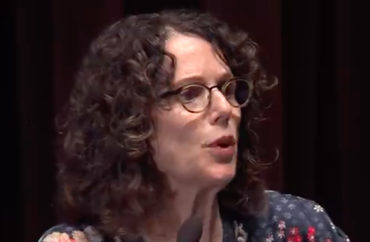
Influential race scholars threaten their own project by assuming their critics have psychological problems
Founders of critical race theory such as Richard Delgado and Robin DiAngelo commit the fallacy of appealing to the motives or character of their critics instead of their arguments.
“Many of [critical race theory’s] most prominent academics impugn the motives of anyone who disagrees with them,” writer Julian Adorney wrote recently in Quillette.
Richard Delgado is a legal scholar, distinguished law professor at Seattle University School of Law, and a CRT founder. He and Jean Stefancic wrote in Critical Race Theory: An Introduction that opposition to CRT derives from psychological resistance to change.
“As Thomas Kuhn has shown, paradigms resist change,” the authors wrote. “It should come as no surprise, then, that critical race theory, which seeks to change the reigning paradigm of civil rights thought, has sparked stubborn resistance.”
“The problem with white people is that they just don’t listen,” prominent critical race theorist Robin DiAngelo (pictured) told The Guardian. “There is a refusal to know or see, or to listen or hear, or to validate.”
This isn’t an engagement with the ideas of anyone, white or otherwise.
In assuming that their opponents are psychologically incapable of legitimately criticizing their views, Delgado and DiAngelo “refuse to consider the possibility that critics might have something to add to the discussion,” Adorney wrote.
In other words, they commit a logical fallacy of attacking motives or psychological limitations of their critics instead of their ideas.
Logical fallacies are bad arguments which should not persuade, according to the Internet Encyclopedia of Philosophy. Specifically, the “faulty motives” fallacy is “an irrelevant appeal to the motives of the arguer, and supposing that this revelation of their motives will thereby undermine their reasoning,” it states.
Erec Smith, a professor of rhetoric at York College of Pennsylvania and a co-founder of Free Black Thought, also cited fallacious thinking in an op-ed for Newsweek about the dismissal of black thinkers, such as himself, who object to CRT.
“White dissenters are simply called ‘racist’ while many black dissenters are considered tragic victims of internalized racism,” Smith wrote.
He continued:
But things get ugly when woke Critical Social Justice proponents encounter a certain kind of black person who does not align with their preferred victim narrative and instead emphasizes his or her own individuality or self-regard.
Which means that when we claim to exist, antiracist woke warriors need to erase us, using a logical fallacy I call “erase and replace.” Erase and replace is a combination of the strawman and ad hominem logical fallacies.
The move involves taking the argument someone is making and substituting it for one that fits more neatly into the woke victim narrative by specifically targeting the character of the challenger—since it is, in part, their character that is the greatest challenge.
“It’s true that people can often get defensive when their worldviews are challenged, but for [Critical Race Theorists], this defensiveness only ever goes one way,” Adorney wrote in Quillette.
“Privileged people who disagree with CRT are defensive and argue from self-interest, but Crits themselves (privileged or not) would never do something so base,” he wrote.
Adorney wrote that in their fallacious thinking, critical race theorists don’t understand themselves as searching for truth: “Instead, they see themselves as the anointed ones, in full ownership of the truth and chosen to dispense their wisdom from on high.”
While some of critical race theorists’ ideas are worth considering, their resistance engaging with criticism prevents them from engaging in good scholarship, Adorney wrote. As long as critical race theorists are unwilling to deal with “many sincere criticisms,” they’ll be blocked in actually reducing racism.
In other words, “it’s hard to contribute to a good-faith discussion about how to solve a societal problem when your most prominent scholars won’t even admit to the existence of said discussion,” Adorney wrote.
MORE: Nearly every U.S. state has introduced measures to combat critical race theory: report
IMAGE: Seattle Channel / YouTube.com





Please join the conversation about our stories on Facebook, Twitter, Instagram, Reddit, MeWe, Rumble, Gab, Minds and Gettr.